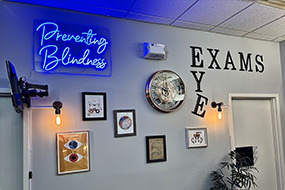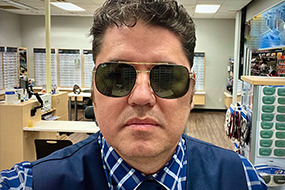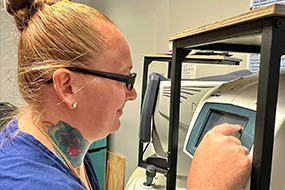
When it comes to your health, certain situations require immediate attention, and eye emergencies are among them. Your eyes are not only windows to the world but also delicate organs that need urgent care when threatened. Understanding how to recognize and respond to eye emergencies can be the difference between a full recovery and long-term damage.
Common Symptoms of Eye Emergencies
Eye emergencies can manifest through a variety of symptoms, and knowing them is your first line of defense. Prompt recognition followed by appropriate action can dramatically influence the outcome.
Pain is a clear sign that something is wrong with your eye. The pain might be sharp and stabbing, a dull ache, or a feeling of pressure inside your eye. It could be due to an injury, infection, or the presence of a foreign object. Discomfort accompanied by redness, swelling, or secretion should also be taken seriously as these could indicate a serious infection or inflammation.
Sudden changes in your vision are alarming. This could include sudden blurriness, the appearance of dark spots, or a curtain-like effect over your field of vision. Flashes of light or an increase in floaters (small spots or lines that drift through your field of vision) can be signs of retinal detachment, which is a medical emergency.
Physical changes to the eye's appearance can be indicative of an emergency as well. This includes a bulging eye, a pupil that doesn't respond to light, or an obvious wound on the eye. Blood visible in the white part of the eye (subconjunctival hemorrhage) or the pooling of blood inside the eye (hyphema) are also critical conditions that warrant immediate medical attention.
Types of Eye Emergencies and How to Respond
Understanding the different types of eye emergencies and how to respond to them can be vital in preserving your vision or that of someone else. Here are some common scenarios and the recommended responses.
Chemical Burns: Chemical burns occur when a harmful substance comes into contact with your eye. Alkali substances like bleach or oven cleaners are particularly dangerous. If this happens, rinse your eye with clean, lukewarm water immediately and continuously for at least 15 minutes. Hold your eye open and roll your eyeball around to ensure the entire eye is rinsed. Then, seek professional medical attention without delay.
Foreign Objects: Small particles like dust or sand can usually be washed out with tears or eye drops. However, if the object is larger or causes significant pain, do not attempt to remove it. Do not rub your eye, as this can cause further damage. Instead, lightly cover the eye with a protective shield and see a medical professional as soon as possible.
Blunt Trauma: Blunt trauma from an accidental strike or fall can cause serious harm to your eye. If the eye is hit, apply a cold compress to reduce swelling and pain but do not apply pressure. If there is bleeding, a cut, or if you experience changes in your vision, seek emergency medical care immediately.
The Importance of Seeing an Optometrist in Eye Emergencies
An optometrist is trained to diagnose and treat eye conditions. They have the equipment and expertise to assess the extent of the injury or condition and can provide the necessary treatment or refer you to a specialist. Self-diagnosing or delaying professional care can lead to complications or permanent vision loss.
Many eye emergencies, such as retinal detachments or glaucoma, can lead to irreversible damage if not treated promptly. An optometrist can help prevent long-term damage by providing immediate interventions or surgeries that can save your sight.
After an initial emergency treatment, follow-up care is crucial to ensure your eye heals properly. An optometrist will monitor your recovery and provide guidance on how to care for your eye post-injury or surgery. They can also identify and manage any complications that may arise, ensuring the best possible outcome for your eye health.
Conclusion
Eye emergencies can happen to anyone, at any time, and the steps you take in response can have lifelong implications. Understanding the common symptoms and knowing how to react can help you protect your precious sight.
For more information on eye emergencies or if you need medical attention, visit Doc Eye at our office in Waterford, Connecticut. Call or text (860) 215-4009 to schedule an appointment today.


















